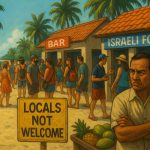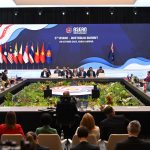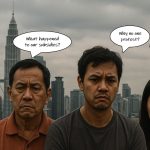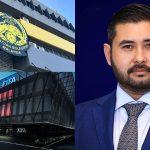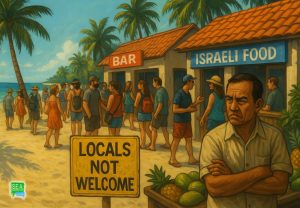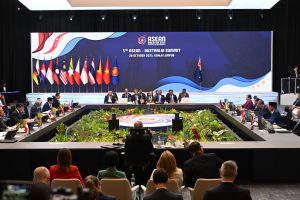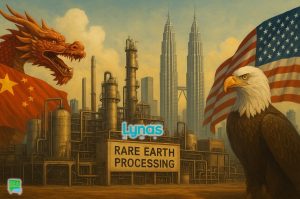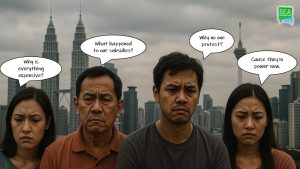
SG60 to SG100: PMET Crisis and the SME Answer
PMET survival and SME growth will define Singapore’s economic journey from SG60 to SG100. The city-state has just celebrated its 60th year of independence. From a fragile trading port, it has grown into one of the world’s most advanced economies. Yet the next 40 years will bring tougher challenges. Labour policies that protect lower-wage workers while attracting multinational corporations (MNCs) risk leaving the nation’s growing pool of professionals, managers, executives, and technicians (PMETs) vulnerable. Unless SMEs are strengthened and enabled to expand across ASEAN, the island city could face a glut of underemployed graduates by the mid-2030s.
President Tharman Shanmugaratnam’s call for a “We First” society provides both moral and political justification for change. His appeal to put collective interests before individual gain must now guide how Singapore builds future career pathways for its citizens.
Protection at the Base
Singapore’s labour framework already secures the lowest-paid. The Progressive Wage Model (PWM) enforces sector-specific wage ladders in cleaning, security, retail, food services, and transport. Employers must meet these wage floors for Singaporeans and permanent residents, while Workfare schemes add cash and CPF top-ups. Levies and quotas on work permits prevent firms from depending too heavily on migrant labour.
This model reflects “We First” values by protecting those with the least bargaining power. Yet by 2035, nearly 90 percent of Singaporeans will hold diplomas or degrees. The pressing challenge will not be cleaners or guards but PMETs facing globalised competition and automation.
Exposure at the Middle
PMETs today face weaker safeguards. Employment Pass holders are not subject to quotas, and companies may hire freely if salary thresholds are met. The S Pass system has levies and dependency ceilings, but rules remain designed to keep mid-skilled foreigners available. Newer mechanisms such as COMPASS and the Fair Consideration Framework nudge firms toward hiring locals, but they stop short of securing PMET futures.
The risks are compounded by artificial intelligence (AI). Mid-level PMET roles in finance, IT, legal services, and marketing are increasingly automated. Regional MNC hubs are also slimming down. What once required 500 staff can soon be managed by 50, supported by AI systems and back-office teams in Kuala Lumpur, Manila, or Ho Chi Minh City.
The 10-Year Risk
The structural danger lies not at the base of the workforce but in the middle. As PWM workers retire, the number of Singaporean PMETs will surge. Yet MNC headquarters in Singapore are projected to shrink. ASEAN neighbours such as Jakarta, Bangkok, and Hanoi are developing fast, offering cheaper rents and large domestic markets. Without alternative engines of growth, the city-state could see many young PMETs unemployed or underemployed within a decade.
Why SMEs Hold the Key
Here the “We First” principle must guide economic restructuring. If Singapore wants its PMETs to thrive, it must build career ladders through its own SMEs. Unlike global MNCs that optimise worldwide, SMEs anchored in the island city can extend Singaporean interests into ASEAN.
A one-stop government department to drive SME internationalisation would cut through policy fragmentation. An EXIM-style bank could provide credit guarantees and insurance, helping SMEs manage risk in emerging ASEAN markets. Local giants like DBS have made strong forays into India, but their ASEAN presence remains limited. Targeted institutions are needed to help SMEs seize opportunities closer to home.
Internationalising SMEs would generate thousands of PMET roles across ASEAN. Young professionals could rotate through Jakarta, Manila, or Ho Chi Minh City as managers, engineers, or project leads. This is not just an economic adjustment but a concrete expression of “We First”: ensuring citizens benefit first when global shifts occur.
A Different Future
Singapore’s pro-MNC strategy has served the nation for six decades, but it is no longer sufficient for the road to SG100. To reach its centennial as a resilient economy, the city-state must pair MNC attraction with SME empowerment. President Tharman’s “We First” vision offers the framework: collective responsibility, shared progress, and opportunity for all.
A regionalised SME sector will create managerial opportunities, protect the professional core, and embed Singapore’s influence across ASEAN. Protecting cleaners and guards today is necessary. Protecting PMETs tomorrow is urgent. The choice is not between MNCs and SMEs. It is between a hollow hub and a living ecosystem, where ASEAN integration, AI disruption, and global competition are met with resilience rooted in “We First” values.
